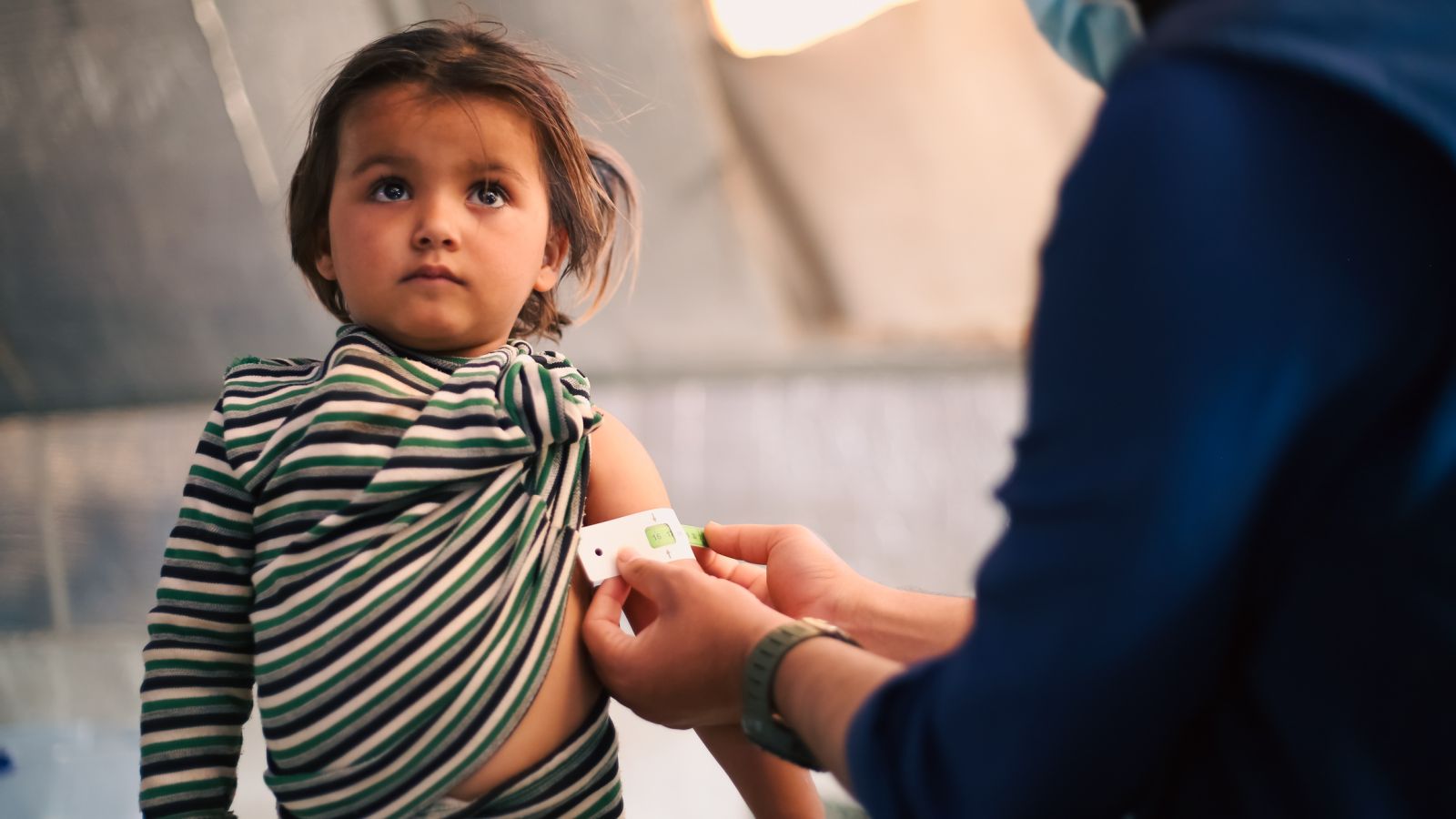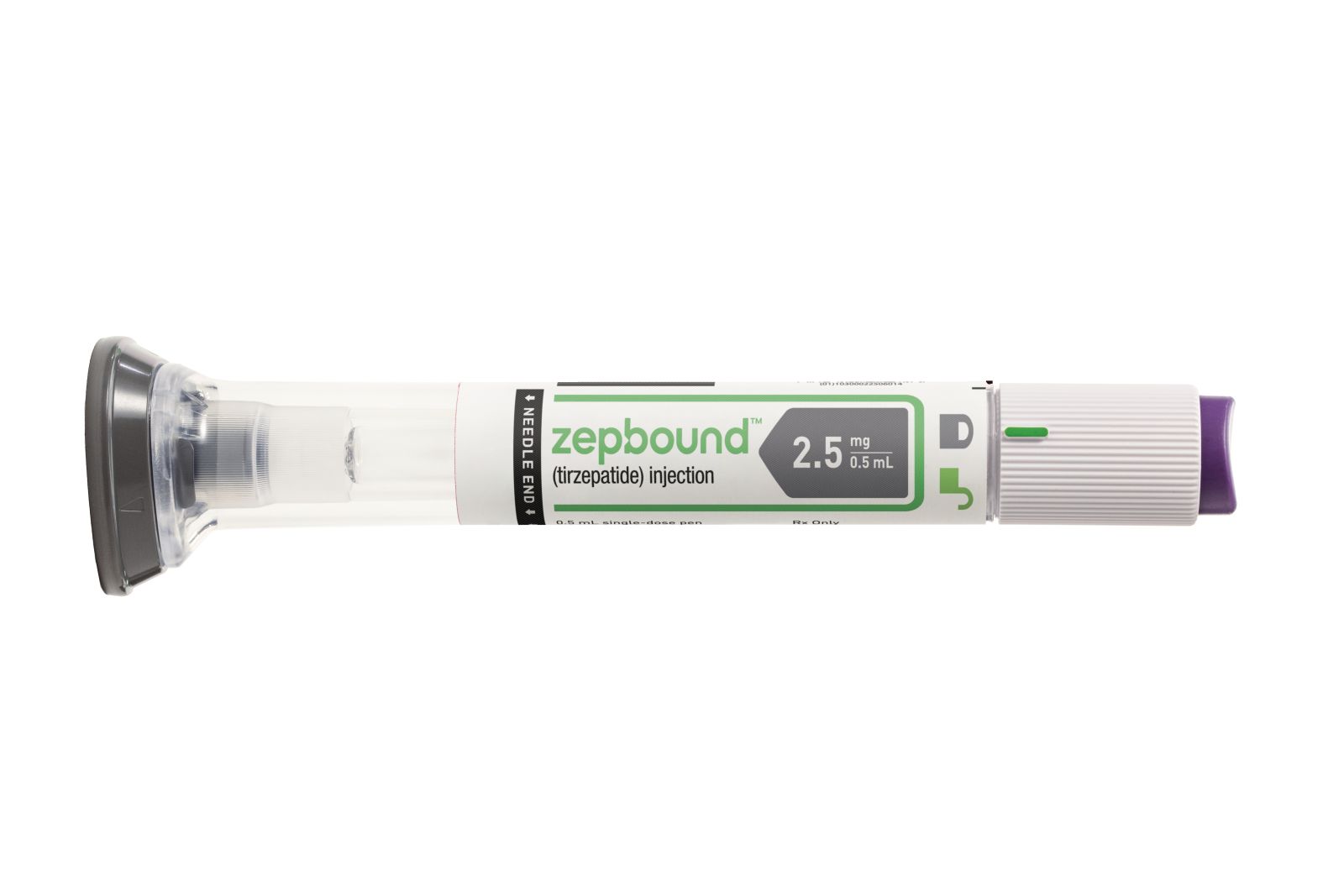diaTribe’s Best Articles of 2023
By April Hopcroft
 2023 has seen landmark advances in the treatment and prevention of diabetes, from extraordinary weight loss to beta cell replacement therapy. Here are the top articles we published that chart the course of this amazing year.
2023 has seen landmark advances in the treatment and prevention of diabetes, from extraordinary weight loss to beta cell replacement therapy. Here are the top articles we published that chart the course of this amazing year.
1. Diabetes Fast Food Guide: What to Order at McDonald’s
Ever wondered how to survive the drive-thru with diabetes? Dietitian and diabetes educator Constance Brown-Riggs walks through the best things to order at top fast food chains, starting with the Golden Arches.
If you’ve ever found yourself in the drive-thru lane trying to option for something healthier, fear not: There are actually quick drive-thru meal options that won’t compromise your carb budget or sacrifice your health. Click here to keep reading.
2. New Oral Drug Leads to Better A1C and Weight Loss
New data on the medication orforglipron – a GLP-1 medication in development but not yet approved – shows encouraging results for both A1C and weight loss. In the 26-week trial, A1C fell by about 2% in participants on higher doses of orforglipron, and participants on higher doses of orforglipron lost up to 22 pounds.
Based on these findings, orforglipron outperforms Trulicity and holds promise as another oral option for type 2 diabetes. Click here to keep reading.
3. Diabetic Macular Edema: How I Almost Went Blind
diaTribe’s Eritrea Mussa lived with well-managed type 1 diabetes for 20 years until one day, an unexpected complication nearly took away her sight.
“I felt like I had been gut punched… I felt sorry for myself and angry with my diabetes. I'd go outside and stare at the sky with just my left eye and take mental pictures. And I cried. I felt like living with diabetes was like a sand hourglass where complications were inevitable, but at age 29, I never expected for the sand to run out on my sight so suddenly. At midnight on New Year’s Eve – one day after I saw my optometrist – I wished for my eyesight back.
Here’s how she made it out in one piece, vision and all. Click here to keep reading.
4. Tidepool Expands Closed Loop Access, Wins Clearance From FDA
The FDA cleared Tidepool Loop for people with type 1 diabetes ages six and up. Tidepool Loop is now the first “do-it-yourself” automated insulin delivery system with clearance from the FDA.
The software connects three components: a continuous glucose monitor (CGM), an insulin pump, and the Tidepool Loop algorithm. Perhaps the most significant feature of Tidepool Loop is the software’s ability to allow components from different insulin delivery systems to communicate in a coordinated way, without effort needed from the user. Click here to keep reading.

5. Get a Free Lifetime National Parks Pass
People with diabetes who are U.S. citizens or permanent residents can apply for an America the Beautiful Pass, which offers access to over 2,000 parks, monuments, and landmarks.
National Parks are great places to go on a walk, hike, or bike ride, and physical activity has many benefits for diabetes care and mental health. National parks lover Alex Day, who has lived with type 1 diabetes for 20 years, also shares tips for exercising outdoors safely. Click here to keep reading.
6. Stigma Makes Managing Diabetes Harder
Molecular biologist Liz Kopco has been living with type 2 diabetes since 2014. Along with advocating for women and girls in STEM, Kopco shares her personal journey with diabetes to help teach people to become their own advocates.
“Every day I have two fights: one against diabetes progression and one against stigma. I have twice the fighting and sometimes half the resources to do so. I can’t fight this on my own. Diabetes stigma is perpetuated and upheld by society and it’ll take society to end it. Fighting it together is important because it means I can focus on just living with diabetes.”
Click here to keep reading.
7. FDA Clears Beta Bionics' iLet Bionic Pancreas – No Carb Counting Required
.jpeg) Beta Bionics has received FDA clearance for its insulin-only iLet Bionic Pancreas, an automated insulin delivery system that eliminates the need for carbohydrate counting.
Beta Bionics has received FDA clearance for its insulin-only iLet Bionic Pancreas, an automated insulin delivery system that eliminates the need for carbohydrate counting.
This is the first automated insulin delivery system that needs only two pieces of information – the user’s body weight and their estimation of a meal as average in size, smaller than average in size, or larger than average in size – in order to dose insulin accordingly.
Clinical trial results and user testimonials were impressive in improving time in range, A1C, and, for many, reduced diabetes-related stress. The iLet Bionic Pancreas is approved for people with type 1 diabetes ages 6 years and older. Click here to keep reading.
8. Better than Mounjaro? New Drug Sees Highest Weight Loss Results Seen in Studies Yet
Clinical trial participants taking retatrutide for obesity experienced an average of 24% in body weight reduction over 48 weeks. Lead scientists shared their findings at the ADA’s 83rd Scientific Sessions in San Diego.
The results indicate that retatrutide – a GIP/GLP-1/glucagon receptor triagonist – could be more effective than Mounjaro (tirzepatide), another Lilly drug that showed 21% weight loss in trials. Click here to keep reading.
9. What I Eat As a Diabetes Expert, Dietitian, and Strength Coach with Type 1 Diabetes
Ben Tzeel, a registered dietitian and strength coach who has lived with type 1 diabetes for over 20 years, discusses his daily eating habits and what others with diabetes should know.
“The goal is to find the best way of eating for you and your goals, not to simply match what the dietitian and diabetes educator does," Tzeel said. "The goal is to find that sweet spot for your body where your time in range, energy levels, and workout performance are at their best, and to stay there.”
Click here to keep reading.
10. Diabetes Care During Armed Conflict
 Ongoing hostilities and violence across the world leave people with diabetes in crisis and without access to essential resources. What can be done to help?
Ongoing hostilities and violence across the world leave people with diabetes in crisis and without access to essential resources. What can be done to help?
“From the first day of the war in Gaza, all of the clinics that provide medical care for people with diabetes are closed,” said Dr. Waseem Alzaanin, a doctor currently volunteering in Gaza with the Palestine Red Crescent Society. “There is an extreme shortage of all medical supplies. I know a lot of people with diabetes who do not have drugs, insulin, or glucometer sticks to check their glucose levels.”
Roughly two billion people now live in areas of armed conflict, according to the United Nations. In war-torn areas like Palestine, Ukraine, Iraq, Yemen, and many more, people with life-threatening conditions are especially vulnerable without access to even basic medical care. Click here to keep reading.
11. How to Keep Your Kidneys Healthy When You Have Diabetes
Having diabetes puts you at risk for problems with your kidneys. Learn about the steps you can take, as recommended in the ADA Standards of Care, to maintain the health of your kidneys and prevent damage.
Unfortunately, it’s estimated that 20-40% of people with diabetes develop what’s known as chronic kidney disease (CKD) due, in part, to less than optimal glucose and blood pressure management.
Keeping these measures within target ranges, healthy eating and taking medications that help prevent or delay CKD are all actions that go a long way to help keep your kidneys healthy. Click here to keep reading.
12. Lower-Carb Peanut Butter Shortbread
 This shortbread recipe, from the new diabetes-focused cookbook “For Good Measure,” contains only 14 grams of total carbs per serving.
This shortbread recipe, from the new diabetes-focused cookbook “For Good Measure,” contains only 14 grams of total carbs per serving.
In 2016, Jennifer Shun’s daughter was diagnosed with type 1 diabetes at the age of 11. Family time, which revolved around meals in the kitchen, dramatically changed with her daughter’s new dietary needs.
Now Shun is sharing her story in her first cookbook, “For Good Measure: A Diabetic Cookbook,” which offers more than 80 flavorful, layered, and naturally lower-carb recipes.
When asked about which recipe was a top house favorite in the book, the author had an immediate response: her peanut butter shortbread, which is composed of a layer of crumbly shortbread, a layer of creamy peanut butter, and a coating of decadent dark chocolate. Click here to keep reading.
13. Vertex Releases New Data on Potential Cure for Type 1 Diabetes
For many years, a cure for type 1 diabetes has only been a pipe dream for the millions of people living with type 1 diabetes. New data from Vertex Pharmaceuticals on the first people to receive a revolutionary cell therapy for type 1 suggests a significant step toward a cure.
A third person with type 1 diabetes has achieved insulin independence after treatment with VX-880. In addition, all six participants in the trial experienced significant improvements in A1C, time in range, as well as a reduced need for insulin injections. Click here to keep reading.
14. 6 Ways to Naturally Lower Blood Sugar
Keeping blood sugars in balance is crucial for people with diabetes. Fenugreek, apple cider vinegar, and supplements like fiber and zinc are all-natural treatments that may help lower glucose levels.
Getting enough exercise, eating a diet rich in nutrients, and taking medications like insulin and metformin are all effective ways to lower blood glucose.
If you’re looking to supplement your diabetes care routine, there are also lots of natural remedies available. Here are six organic methods that may help you avoid blood sugar spikes and keep glucose levels in target range. Click here to keep reading.
15. FDA Clears Tandem’s Mobi Insulin Pump for Ages 2+
Tandem’s new Mobi automated insulin delivery system has received FDA clearance, making it the world’s smallest insulin delivery system to be fully controllable by a smartphone for ages 2 and older.
Both the Tandem Mobi, which comes out in 2024, and Tandem's existing insulin pump, the t:slim X2, utilize Control-IQ Technology, a prescription-only software that automates glucose levels using an algorithm that analyzes CGM readings and determines how much insulin to deliver.
Tandem Mobi and Control-IQ have now been cleared by the FDA for children 2 years of age and older with type 1 diabetes. Click here to keep reading.
16. Does Caffeine Affect Blood Sugar?
While some affirm the health benefits of caffeine, like improving insulin sensitivity and blood sugar, research is mixed on whether it's detrimental for people with diabetes.
Caffeine has been shown to offer a handful of health benefits, including potentially reducing the risk of developing type 2 diabetes. But for those who already live with diabetes, does caffeine offer similar benefits? It turns out there isn’t an easy answer to this question.
When in doubt, it’s best to speak with a healthcare provider about your caffeine intake, as everyone responds to it differently. Click here to keep reading.

17. Zepbound (Tirzepatide) FDA-Approved for Chronic Weight Management
After much anticipation, the diabetes medication Mounjaro is now approved under the name Zepbound to treat overweight and obesity. At the highest dose, Zepbound led to weight loss of up to 48 pounds.
With Zepbound’s approval, people who have obesity but not type 2 diabetes have another once-weekly injectable option – alongside Wegovy (semaglutide) – for weight management. The new weight loss drug may be particularly beneficial given the recent shortages of Wegovy and other incretin-based therapies. Click here to keep reading.
18. Reaching (and Maintaining) Type 2 Diabetes Remission Is More Doable Than You Think
New research shows that it’s possible to reverse type 2 diabetes or put it into remission through a low-calorie diet. We spoke with Dr. Roy Taylor, lead investigator of the DiRECT trial, to understand these findings and what they mean for people with type 2 diabetes.
“Remission is something that should be explained to everyone at diagnosis of type 2 diabetes. They have a choice – lose around 30 pounds in weight by this proven and acceptable method or, alternatively, take medications and accept the risk of illness,” Taylor said.
In the DiRECT trial, nearly 1 in 4 people with type 2 diabetes was able to reverse their diabetes for up to five years through weight loss using a low-calorie diet. Click here to keep reading.







